
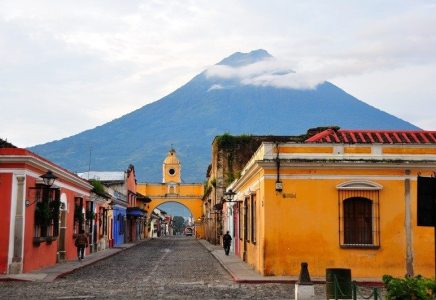
UNWTO: Good tourism practices to advance sustainable development in the Americas
Concrete examples of how to advance sustainable development through tourism take centre stage in the first joint publication between the World Tourism Organization (UNWTO) and the Organization of American States (OAS). ‘Tourism and the Sustainable Development Goals: Good Practices in the Americas’ provides 14 case studies from across the region on why tourism ranks high among the economic sectors better positioned to enable the Agenda 2030 for Sustainable Development and its 17 Sustainable Development Goals.
Ranging from tourism projects to strengthen the peace process in Colombia to initiatives in the heart of the Peruvian Amazon, addressing climate change in Mexico or providing insight into management and sustainability systems in Honduras or Panama. A total of 14 case studies portray the contribution of tourism to advance the Sustainable Development Goals in the Americas.
‘Tourism and the Sustainable Development Goals: Good Practices in the Americas’ recommends to pay critical attention to tourism management as well as to strengthening partnerships between national and international public and private stakeholders, as well as local communities. The report also addresses the emergence of a more responsible traveler and how destinations in the region should integrate resource efficiency and multi-stakeholder involvement in their policies, actions and initiatives.
“With more than 200 million international tourists who traveled to the Americas in 2017, tourism can and must play a significant role in delivering solutions for sustainable development in the region”, said UNWTO Secretary-General, Zurab Pololikashvili. “I am grateful for the partnership with the Organization of American States and am confident that together we will support tourism’s role in the sustainable development agenda of the region up to and beyond 2030”, he added.
According to the Executive Secretary for Integral Development of the OAS, Kim Osborne, this joint effort “provides greater awareness on how tourism can help address poverty alleviation, protect biodiversity and cultural heritage, and support community development in the Americas”.
Authorities at all levels in the Americas have identified tourism as a priority sector to promote economic development and diversification and countries across the region are adopting new legislation and policies in this direction. Against this backdrop, ‘Tourism and the Sustainable Development Goals: Good Practices in the Americas’ provides insight into how a common approach – including policy makers, private sector, tourists and the development community – can catalyze sustainable development through tourism.
The report was presented during the 2018 Inter-American Congress of Ministers and High-level Authorities of Tourism, under the theme ‘Connecting the Americas through sustainable tourism’.
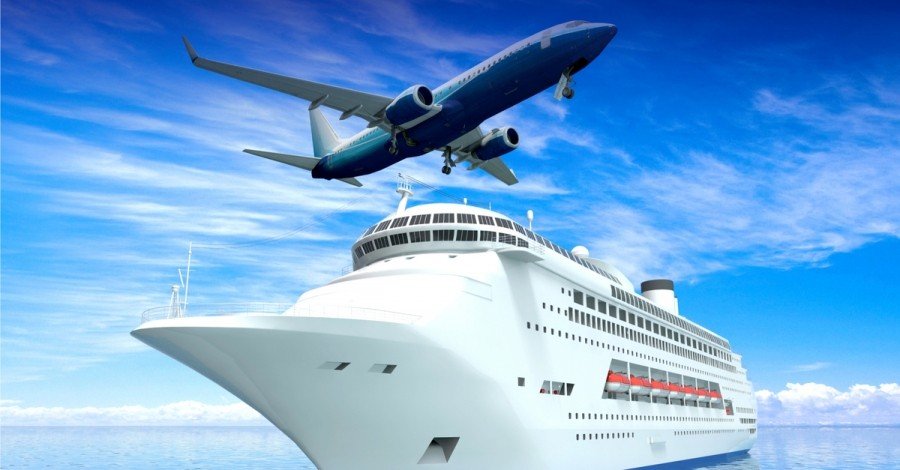
WTTC: One in five of all new jobs created in 2017 are attributable to Travel & Tourism
WTTC’s annual Economic Impact Research, released today, shows that Travel & Tourism was responsible for the creation of 7 million new jobs worldwide. The report also shows that 2017 was a bumper year for the global Travel & Tourism sector, which grew at 4.6%, 50% faster than the global economy as a whole (3% growth during 2017).
Gloria Guevara, WTTC President & CEO said, “Travel & Tourism creates jobs, drives economic growth and helps build better societies. Our research shows that our sector was responsible for the creation of one in five of all jobs globally. In the last few years, Governments around the world are realising the extraordinary benefits of tourism and I congratulate them for taking steps to maximise our sector’s potential.”
For the seventh consecutive year, the Travel & Tourism sector has outperformed the global economy and in 2017 was the fastest growing broad economic sector globally, showing stronger growth than all sectors including manufacturing (4.2%), retail and wholesale (3.4%), agriculture, forestry and fisheries (2.6%) and financial services (2.5%).
In 2017, Travel & Tourism’s direct, indirect and induced impact accounted for:
US$8.3 trillion contribution to global GDP (10.4%)
313 million jobs, 1 in 10 jobs around the world
US$1.5 trillion exports (6.5% of total exports, 28.8% of global services exports)
US$882 billion investment (4.5% of total investment)
Ms Guevara continued, “2017 was the best year on record for the Travel & Tourism sector. We have seen increased spending as a result of growing consumer confidence, both domestically and internationally, recovery in markets in North Africa and Europe previously impacted by terrorism and continued outbound growth from China and India. This is great news for the millions of people who depend on our sector for their livelihoods.”
Highlights from around the world include:
Europe’s performance was better than previously expected with 4.8% growth as long-haul demand recovered strongly, accompanied by strong intra-regional travel thanks to the strength of the European economy. According to the International Air Transport Association (IATA) in 2017, European airlines recorded passenger growth of 8.1% and over 1 billion passengers for the first time.
Travel & Tourism’s contribution to GDP in North Africa grew by 22.6% in 2017, showing a strong rebound from the impacts of terrorism in previous years. Stellar performance from Egypt (72.9%) and solid growth in Tunisia (7.6%) inspire confidence in the region as tourism activity continues to recover to pre-attack levels.
Asian countries continue to drive global tourism growth with North East Asia growing at 7.4% and South East Asia at 6.7%. China continues to lead the way at 9.8%. Over the next ten years over one third of absolute GDP growth and nearly half of employment growth will be generated by China and India.
Latin America showed a decline of 1.4% in tourism GDP, largely a result of a contraction in international spend to the largest Latin American economy, Brazil, of 18.1% compared to 2016, and compounded by the ongoing political and economic problems in Venezuela.
Forecasts for 2018 suggest that growth will continue, albeit at a slower rate than in 2017 as a result of higher oil prices.
The long-term outlook to 2028 remains unchanged, with average growth of 3.8% per year over the next decade. However, by 2028, Travel & Tourism is expected to support more than 400 million jobs globally, which equates to 1 in 9 of all jobs in the world; and the sector is expected to contribute around 25% of global net job creation over the next decade.
Ms Guevara added “As our sector continues to become more important both as a generator of GDP and jobs, our key challenge will be ensuring this growth is sustainable and inclusive. Going forward we need to ensure that growth is planned for, well managed and includes partnerships between not only the public and private sectors but also includes communities themselves. There is a huge potential for governments to capitalise on the opportunities Travel & Tourism brings to create new jobs, especially in those economies where many jobs in other sectors are under threat from automation. Travel & Tourism is the best partner for governments to create jobs.”
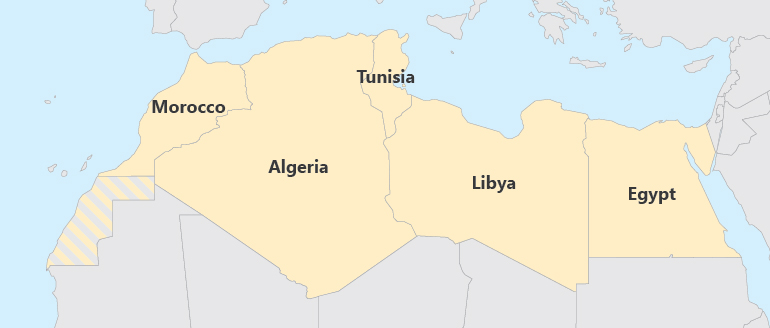
2017 saw significant recovery for tourism in North Africa
Travel & Tourism in countries previously hit by terrorism and political unrest started to show signs of strong recovery in 2017, according to the World Travel & Tourism Council’s (WTTC) latest Economic Impact Report, launched today.
Overall T&T growth in North Africa was 22.6% in 2017, more than three times faster than any other world region and five times faster than the world average of 4.6%. Driving this growth was an excellent recovery in Egypt, where tourism’s contribution to GDP grew by 72.9% compared to 2016; and a strong but more muted recovery in Tunisia of 7.6%. In Turkey, tourism’s contribution grew by 17%.
GDP growth from Travel & Tourism massively outpaced growth in the whole economy in countries previously hit by terrorism. In Egypt the economy grew by 4.1%, in Tunisia by 2% and Turkey by 7.0%). This highlights the sector’s importance in driving economic growth in these countries.
Overall in 2017, Travel & Tourism generated US$21.1 billion of GDP in Egypt (11.0% of total GDP), US$5.7 billion of GDP in Tunisia (14.2% of total) and US$ 98.4 billion in Turkey (11.6% of total); and Travel & Tourism accounted for 8.5%, 13.0% and 7.4% of employment in each country respectively.
With this strong recovery in 2017 and promising forecasts for 2018, particularly as major source markets such as the UK return to the region, with the resuming of charter flights, these countries are well on track to return to pre-crisis levels.
Gloria Guevara, President & CEO of WTTC said, “In a year which has generally seen strong growth in the Travel & Tourism sector, this positive performance in Egypt, Tunisia and Turkey is very encouraging. Our research shows that public and private sector co-operation is key to a destination’s ability to recover from shocks such as terrorist attacks or political unrest, and I encourage the governments of these countries to continue with their engagement with the private sector in pursuit of future sustainable growth.”
“The experience of Egypt, Tunisia and Turkey as well as other countries which have suffered terrorist attacks in recent years, such as France and Belgium which also performed well in 2017, highlights how important it is that as an industry we find the balance between safe, secure and seamless travel. Security is paramount, and it will be vital in coming years that we optimise the use of technology, such as biometrics, to ensure secure and efficient travel, which will ultimately create and protect jobs.”
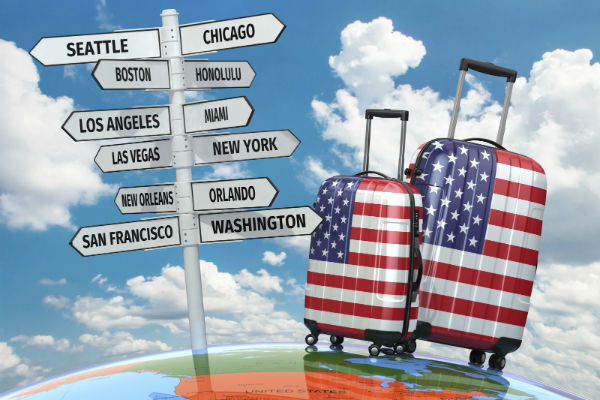
US tourism sector largest in the world, but losing share
The United States’ tourism sector continues to be the largest in the world, according to new research released today by the World Travel & Tourism Council (WTTC). Travel & Tourism generated US$1.5 trillion for the US economy in 2017, more than any other country in the world. US tourism ranks no 1 in the world for GDP contribution, and visitor exports (international tourism spend in the country).
In 2017, Travel & Tourism supported nearly 14 million jobs and over US$200 billion in exports.
Gloria Guevara, President & CEO of WTTC, said “The US has long been a world leader in tourism and remains in the no 1 spot for another year. Travel & Tourism is vital for the US economy, generating economic growth, employment and exports. Our research shows that Travel & Tourism directly supports nearly twice as many jobs as the banking sector, eight times more than the mining sector, and six times more than the automotive manufacturing sector. The tourism sector is the best partner the US can have in creating new jobs”
The data also shows that tourism in the US grew by 2.3% in 2017. This compares to 9.8% growth in China, 6.2% in the United Kingdom, 7% in Spain, and 5.5% in Canada. Global tourism growth outpaced the economy for the seventh year running, growing at 4.6% compared to economy growth of 3%, and significantly outpaced economy growth in many countries. Travel & Tourism grew four times faster than the wider economy in the UK, and twice as fast in Japan and Spain, for example.
However, in the US Travel & Tourism equalled total economy growth.
Guevara continued “The data suggests that the US is not getting its fair share, as other countries are increasing their tourism at a faster rate. This means there is a huge opportunity for the US to grow tourism to increase jobs and exports. The government is ideally placed to tap into this opportunity, by promoting the country so that visitors know that the US is open and welcoming, while being secure.
“The US has a strong foundation with the private sector working well with government, which we applaud and continue to encourage. Its Visa Waiver is being replicated in other countries, so should be protected at home. And the US Global Entry scheme is one of the best in the world – its expansion would encourage visitors, especially high spending business and regular travellers.

WTTC predicts a record year for South African tourism in 2018
Travel & Tourism is forecast to contribute more to the South African economy in 2018 than in any other year, according to major new research released today by the World Travel & Tourism Council (WTTC).
WTTC forecasts that the sector will contribute ZAR424.5 billion to the overall economy in 2018, a rise of almost 3% on 2017, and the highest since WTTC forecasts began.
Gloria Guevara, President & CEO, WTTC, said: “Travel & Tourism creates jobs, drives economic growth and helps build better societies, which is particularly the case in South Africa. WTTC predicts that our sector will contribute more to the South African economy than in any other year, which makes it the perfect partner for the new administration to put at the heart of the Government’s long-term economic plans.”
Other highlights of the report released today show:
Travel & Tourism supported 1.5 million jobs in 2017 (9.5% of total employment)
By 2028 almost 2.1 million jobs in South Africa are forecast to be dependent on Travel & Tourism
Travel & Tourism contributes 9% of the total GDP of South Africa, once all the direct, indirect and induced benefits are taken into account
Guevara continued: “Globally, 2017 was one of the strongest years of GDP growth in a decade. Our sector now supports one in ten jobs on the planet and contributes 10% of global GDP. Over the past ten years, one in five of all jobs created across the world has been in the sector and, with the right support from Governments, nearly 100 million new jobs could be created over the decade ahead.”

Saudi Arabia Travel & Tourism grew 4 times faster than wider economy in 2017
Travel & Tourism in Saudi Arabia is growing at a much faster rate than the wider economy, according to major new research released today by the World Travel & Tourism Council (WTTC).
The total contribution of Travel & Tourism to the Saudi economy in 2017 was SAR240.9 billion, once all the direct, indirect and induced benefits were taken into account. This represented an annual rise of 4.6% against GDP growth of 1% for the wider economy.
This shows the Saudi economy is particularly well placed to benefit from Travel & Tourism as part of the diversification of the economy under the Saudi Arabia Vision for 2030.
Other highlights of the report released today show:
Travel & Tourism supported 1.2 million jobs in 2017 (9.1% of total employment)
By 2028 over 1.5 million jobs in Saudi Arabia are forecast to be dependent on Travel & Tourism
Travel & Tourism contributes 9.4% of the total GDP of Saudi Arabia
Gloria Guevara, President & CEO, WTTC, said “Travel & Tourism creates jobs, drives economic growth and helps build better societies. This is particularly the case in Saudi Arabia where our sector is growing at over four times the rate of the wider economy. This means the country is particularly well placed to use Travel & Tourism as a driver of economic growth and job creation within the Government’s Saudi Arabia Vision for 2030 masterplan to diversify the economy.”
“Globally, 2017 was one of the strongest years of GDP growth in a decade. Our sector now supports one in ten jobs on the planet and contributes 10% of global GDP. Over the past ten years, one in five of all jobs created across the world has been in the sector and, with the right support from Governments, nearly 100 million new jobs could be created over the decade ahead.”
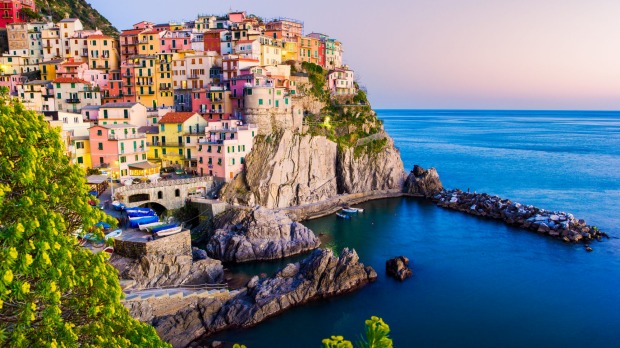
Italian tourist spending grew by 50% more than world average in 2017
Tourists in Italy spent €39.6 billion in 2017 an increase of 6.5% – more than 50% higher than the world average growth of 4.3%, according to major new research released today by the World Travel & Tourism Council (WTTC).
Overall, the total contribution of Travel & Tourism to the Italian economy was €223.2 billion in 2017, once all the direct, indirect and induced benefits were taken into account. This means that 13% of the entire Italian economy is dependent in some way on Travel & Tourism.
Other highlights of the report released today show:
Travel & Tourism supported 3.4 million jobs in 2017 (14.7% of total Italian employment)
By 2028 almost 4 million jobs in Italy are forecast to be dependent on Travel & Tourism
The travel sector grew by 2.7% in 2017, compared to growth of 1.6% in the wider economy
Italy is the 6th largest travel economy in the world
Gloria Guevara, President & CEO, WTTC, said “Travel & Tourism creates jobs, drives economic growth and helps build better societies. This is particularly the case in Italy which has some of the world’s most famous tourism sites. I commend the Italian government and private sector for their management of the tourism economy – achieving growth 50% than the world average last year – which has enormous potential to create Italian jobs and to be part of the regeneration of the Italian economy.”
“Globally, 2017 was one of the strongest years of GDP growth in a decade. Our sector now supports one in ten jobs on the plant and contributes 10% of global GDP. Over the past ten years, one in five of all jobs created across the world has been in the sector and, with the right support from Governments, nearly 100 million new jobs could be created over the decade ahead.”

Japan’s tourism grew at double the rate of wider economy in 2017
Japan’s Travel & Tourism sector grew at more than twice the rate of the wider economy in 2017, according to major new research released today by the World Travel & Tourism Council (WTTC).
The total contribution of Travel & Tourism to the Japanese economy in 2017 was JPY37,136 billion, once all the direct, indirect and induced benefits were taken into account. This represented an annual rise of 3.4% against growth of 1.6% for the wider economy.
Gloria Guevara, President & CEO, WTTC, said “This is a strong performance by the Japanese Travel & Tourism sector which reinforces the role of our sector as major contributor to economic growth and job creation. International arrivals have been very strong in recent years as Japan looks to its target of 40 million international visitors by the time of the Tokyo Olympics in 2020.”
Other highlights of the report released today show:
Travel & Tourism supported 4.2 million jobs in 2017 (6.4% of total Japanese employment)
By 2028 over 4.5 million jobs in Japan are forecast to be dependent on Travel & Tourism
Japan is the 4th largest travel economy in the world
Ms Guevara continued: “Travel & Tourism creates jobs, drives economic growth and helps build better societies. This is particularly the case in Japan where the tourism economy is growing at more than double the rate of the wider economy. This makes Travel & Tourism the perfect partner for the creation of quality long-term jobs and economic growth. We commend the Japanese Government for their commitment to creating a thriving tourism sector and managing long-term growth in a sustainable way which protects both natural resources and destination integrity.
“Globally, 2017 was one of the strongest years of GDP growth in a decade. Our sector now supports one in ten jobs on the planet and contributes 10% of global GDP. Over the past ten years, one in five of all jobs created across the world has been in the sector and, with the right support from Governments, nearly 100 million new jobs could be created over the decade ahead.”
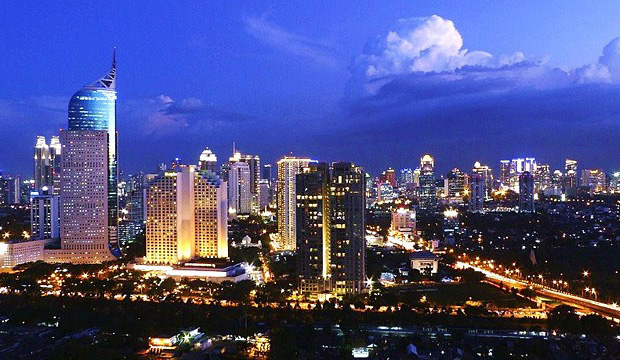
2017 – a record year for Travel & Tourism in Indonesia
2017 was a record year for Indonesian Travel & Tourism with the sector contributing IDR787,100 billion to the nation’s economy, more than any other year on record, according to major new research released today by the World Travel & Tourism Council (WTTC).
Overall, the Indonesian Travel & Tourism economy grew by 6.4% – faster than the 5.1% recorded for the wider economy.
Other highlights of the report released today show:
Travel & Tourism supported 12.2 million jobs in 2017 (10% of total Indonesian employment) – the 4th highest of any country in the world
By 2028 almost 17 million jobs in Indonesia are forecast to be dependent on Travel & Tourism
Travel & Tourism is forecast to grow by 6.4% on average every year for the next decade – the 7th highest in the world
Gloria Guevara, President & CEO, WTTC, said “Travel & Tourism creates jobs, drives economic growth and helps build better societies. This is particularly the case in Indonesia, which is growing faster than almost every other country in the world. Much of this growth can be attributed to the positive decision by the Government to remove travel visas for citizens of 169 countries which has made Indonesia one of the most open countries in the world.”
“Globally, 2017 was one of the strongest years of GDP growth in a decade. Our sector now supports one in ten jobs on the planet and contributes 10% of global GDP. Over the past ten years, one in five of all jobs created across the world has been in the sector and, with the right support from Governments, nearly 100 million new jobs could be created over the decade ahead.”

India to add 10 million tourism jobs in the next decade
India will add around 10 million jobs in the Travel & Tourism sector by 2028 according to a major new report by the World Travel & Tourism Council (WTTC).
WTTC forecasts that the total number of jobs which are dependent in some form on Travel & Tourism will increase from 42.9 million in 2018 to 52.3 million in 2028.
India is currently the seventh largest Travel & Tourism economy in the world. Overall, the total contribution of the sector to the economy was INR15.2 trillion (US$234 billion) in 2017, or 9.4% of the economy once its direct, indirect and induced benefits are taken in to account. This is forecast to more than double to INR32 trillion (US$492 billion) by 2028.
Gloria Guevara, President & CEO, WTTC, said “Travel & Tourism creates jobs, drives economic growth and helps build better societies. This is particularly clear in India which is forecast to be one of the fastest-growing tourism economies in the world over the next decade adding 10 million jobs and hundreds of millions of dollars to the economy by 2028.
“There are some extremely proactive steps which have been introduced by the Government to increase the number of international visitors and to position itself as a destination of choice among travellers worldwide. Particularly, we recognise the introduction of e-Visa for 163 countries and the launch of Incredible India 2.0 Campaign with major improvement in the marketing and PR strategy.
“Looking to the future, India can strategically lead travel facilitation within the SAARC region by introducing a standard technological solution, modern technology and biometrics. This will enhance the travel and tourism economies in the region.
“While the country-wide change to GST is a welcome move, the Indian Government could consider looking again at the level of GST in the hospitality sector to make it more competitive with other countries in the region.
“The Indian aviation market is expanding with rapid advancement in connectivity within India. Indian airlines have booked 900 plus new aircrafts to add capacity and expand operations over next couple of years. However, airport capacity remains an issue, so we would recommend greater adoption of secondary airports across cities with multimodal connectivity between the existing and secondary ones for better passenger facilitation.
“We would also urge the public and private sectors to work together to prepare crisis management plans so the country is fully prepared with proper systems and processes in place, that can be deployed, should there be a crisis.
